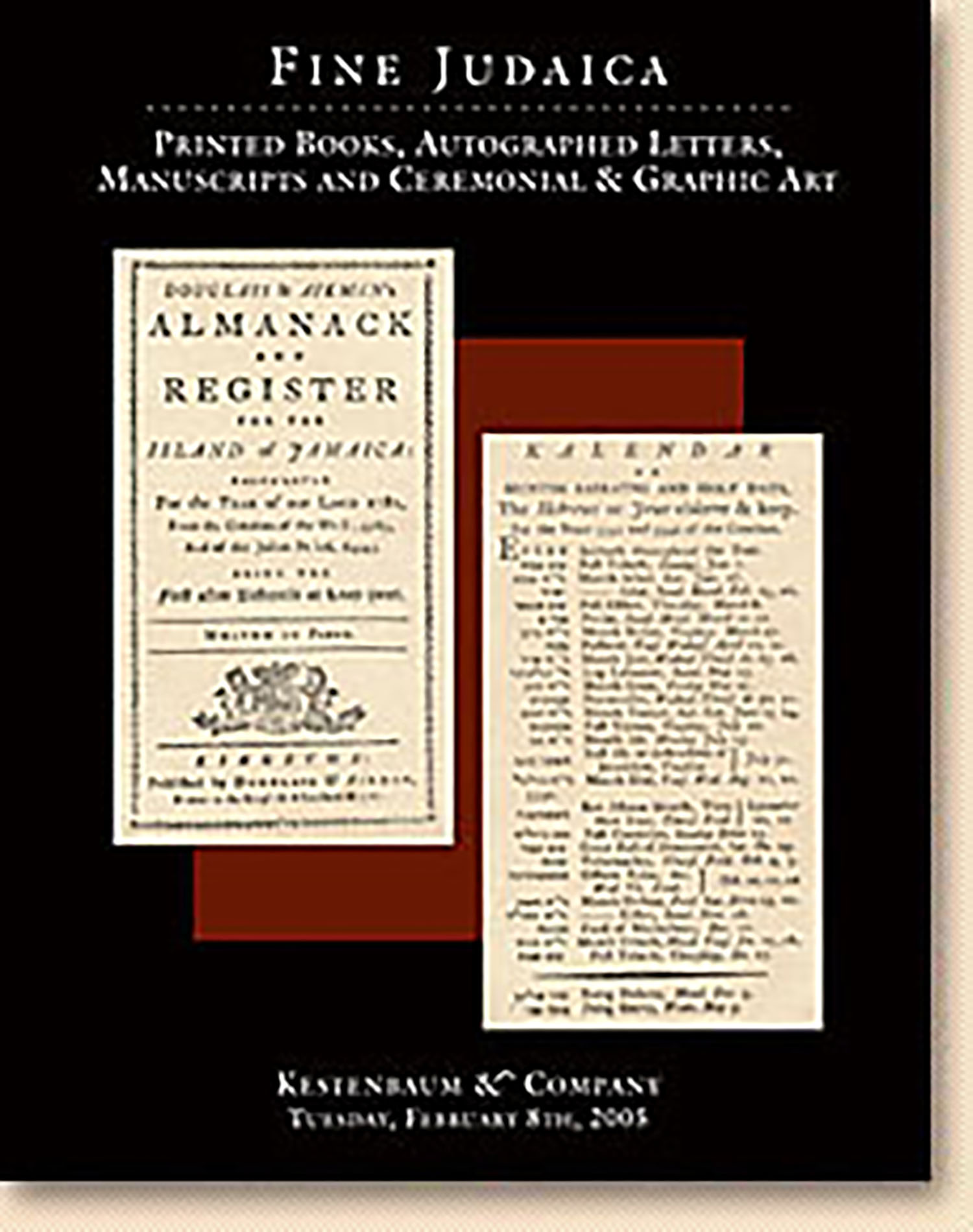Reuven ben Shelomo. Zemer Na'eh [Song for Sabbath]

AUCTION 27 |
Tuesday, February 08th,
2005 at 1:00
Fine Judaica: Printed Books, Autographed Letters, Manuscripts, Ceremonial & Graphic Art
Lot 221
(YIDDISH)
Reuven ben Shelomo. Zemer Na'eh [Song for Sabbath]
Lublin(?): n.p. 1624(?)
Est: $6,000 - $7,000
UNICUM (?) OF EARLY YIDDISH SONG
According to the foremost authority on Yiddish literature, Prof. Chone Shmeruk, only one copy of this book is extant, found in the library of the Dutch bibliographer L. Fuks (the present copy?).
Prof. Shmeruk based his assumption that the year of publication was 1624 (though the title provides no year) on the fact that the border and decorations on the title and last page are identical with the three other Yiddish books produced in Lublin that year. However the latest finding by Herbert C. Zafren writing in HUCA 2000 is that those three books are, to use Zafren’s term, “Pseudo-Lublin.” Zafren goes on to speculate that the three titles—Shir ve-Zemer Na’eh al Orech ha-Galuth, Yetzirath Adam, and Magen Avraham—were actually produced in Hanau, or even Frankfurt. Interestingly enough, much of Zafren’s case rests precisely on the distinctive borders and decorations which definitely are not compatible with those of Lublin! (Other proofs are of a typographical nature relating to the unusual shape of the Hebrew letters aleph, yod, and nun.) See Herbert C. Zafren, Three Pseudo-Lublin Yiddish Books From 1624, HUCA 70-71 (2000), pp. 385-403. If Zafren is correct—which seems to be the case—our unique volume was produced not in the Polish city of Lublin but rather in the German city of Hanau or perhaps Frankfurt. (One notes that the author of Shir ve-Zemer Na’eh al Orech ha-Galuth, Elchanan ben Abraham Heln, was a resident of Frankfurt-am-Main.) Perhaps for this reason, Shmeruk, by his own admission, was unable to find traces of Polish culture in this Yiddish song by an unknown author. In summary, Zafren’s group of “three Pseudo-Lublin Yiddish books from 1624” must now be revised to “four Pseudo-Lublin Yiddish books from 1624.” One assumes that Zafren shied away from discussion of our title for the simple reason that the single copy in existence was unavailable to him for examination
